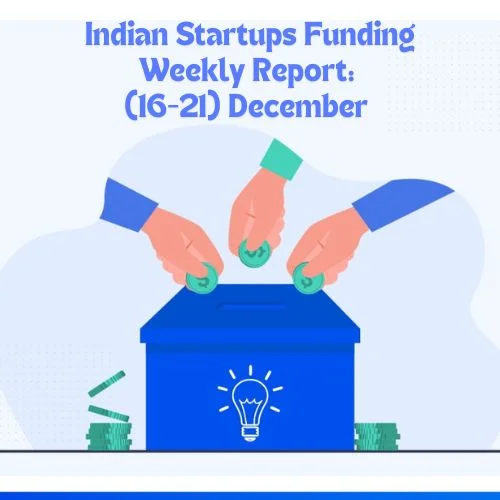There are several ways to succeed today and being self-reliant with the ability to research can take you to distant places of achievement. Currently, the digital divide is compartmentalizing society based on individuals who are ready to embrace the next phase of innovation and take their personal and professional growth to the next level.
You can aim to be a doctor saving the lives of people, an engineer sculpting the best form of technology and infrastructure, a teacher shaping the future of generations, an entrepreneur diving to create an impressive product and disrupt the market with better hope and the list is limitless. The internet has given us everything that we have desired till the advent of inventions and discoveries.
Business Outreach Magazine wants to let you know that out of the several brilliant job titles out there in the market if you choose to start a business and make a reputation out of it, the traditional ways to look for funding might hit you with a dead end. We have figured out 9 ways for a startup loan that can be fetched with the right amount of information.
The importance of startup loans :
In order to build any new business from scratch, there are multiple amounts of resources that need to be looked into. At times, the business owner might not know the right answers. The market fit requires a business to settle the right cost along with hiring the relevant team and placing the position of the product in the market.
This process takes time and is challenging due to the fact that raising capital is sometimes patience-worthy. Today, startup loans are present to cut a bit of the stress for new businesses and also address several other matters.
The startup loan helps the business owner to keep a control mark of the company. On the other hand, investor financing that is equity-based requires providing a share of the company. In startup loans, there is enough room while choose a partner and eventually move toward an investor partner at a later period of time.
A business owner also has the opportunity to build a credit history. In any successful business, the time will always come for expansion or further development and scaling. It is imperative that positive credit history will go a long way to get more loan options with affordable interest rates.
Startup loans for new businesses work under certain conditions that include an expectation to pay back the loan with the interest attached to the principal loan amount. Although the creditor does not demand equity in the company, the business owner has to provide some form of collateral as a guarantee.
This can be personal property or some equipment related to the business. On the other hand, there are also loans that do not require any form of guarantee. This is a huge benefit for small businesses ideas that cannot offer any collateral.
Let us show you 9 options for startup loans for your business :
- Loans from Business Banks :
This type of loan option is a traditional one that is gathered from reputed banks and smaller or ‘challenger banks’. There are loans that are secured which demand collateral and also unsecured loans where no assets are needed to show as security.
Usually, the loan with shorter tenure has the most amount of interest and monthly EMIs. Getting a loan from the bank is the first option that enlightens a new business but also comes with their pros and cons.
Pros :
- Terms with flexible payments from one month to up to 30 years.
- The repayment rates are fixed.
- There is a large amount of capital that can be obtained.
Cons :
- Security is required in the form of assets.
- Late or mispayments get you a high penalty.
- Higher interest rates.
Such loans are best for businesses that have an impressive turnover, good credit scores from a personal or business standpoint.
- Personal Loans :
Personal loans are a good way for new businesses to get a startup loan, where the business owner will be personally liable. In the case for multiple owners in a startup, each can acquire a personal loan to accumulate the desired capital for the new business.
Pros :
- There are many funding options in the market.
- Collateral is not needed.
- A quick process to get a loan.
- The lender cannot say where to use the loan.
Cons :
- Personal credit is on the line.
- Loan amounts are relatively low.
- Interest rates are usually high.
Personal loans are best for business owners with a great personal credit history.
- Government-supported loans :
These types of loans are provided by companies for startup loans along with funding from the government. The government loans scheme is generally for 1 year to 5 years with a fixed rate of interest at 6 %. Being a personal typed loan, startups with multiple owners can apply for it and also get a year of mentorship and business support.
Pros :
- Fixed-rate of interest coupled with diverse and flexible repayments.
- 1 year of mentorship support.
- Government assistance and no requirements of assets given as security.
Cons :
- Strict eligibility criteria.
- Small amounts of loan.
- Checks on personal credit history.
These loans are suitable for startups and businesses that are founded in about 2 years or less.
- Equipment Financing :
Equipment financing can address all the costs related to the costs of machinery required in the business. There are monthly repayment options similar to personal loans. The pivotal factor for this loan is that it can be used only to buy equipment. A SaaS startup can avail of these loans to buy the equipment required for the office.
Pros :
- No requirement for collateral.
- Full ownership of the equipment can be enjoyed.
- Flexible repayment terms with quicker access to funds.
Cons :
- Only used for buying equipment.
- Responsible for maintaining the equipment.
- Higher interest rates.
Businesses that need expensive equipment like in real estate, transportation, and manufacturing can avail of this loan.
- Credit Cards for Businesses :
Startups can choose business credit cards as a simple form of financing option. Since this is based on business income and not on personal income, a business owner can borrow more money.
A credit card for business can pay any unforeseen expense and can help you to strengthen your credit score. So that in the future, more funding options can arise this.
Pros :
- A reliable way to manage the flow of cash.
- Offers cashback, 0 % interest on certain periods, free insurance for travel, and reward points.
- Immediate fund access.
Cons :
- Not always available for new startups and businesses.
- Presence of banking fees.
- Higher interest rates.
- Expensive or high interest on cash withdrawals.
Businesses with good credit scores can avail of this loan.
- Start-up loans from family and relatives :
Getting loans to fund your startup can be daunting sometimes. During this emotional turmoil, help in the form of capital from friends and relatives or someone from the family can go a long way.
This form of capital sourcing has been popular for a long time. The eligibility to get such business start-up loans comes back to your relationship with family members or acquaintances. No credit history or strict application procedure is not tied up with such loans.
Pros :
- No need to go into debt while loaning from a bank.
- Trust is present between friends and families.
- The terms of the loan are flexible and require no interest.
Cons :
- Tied up with a business relationship among families.
- More involvement might come up from the family members.
- Limited amount of loan as per the capacity of the family or friend.
- Crowdfunding :
A crowdfunding platform is an innovative way to source capital as it requires pitching the business plan to investors and consumers in return for something out of their investments. This type of funding also involves lending in peer-to-peer.
There are several crowdfunding platforms out there. A new business with a social following can access the platforms for more growth and scalability. Saas or e-commerce startups generally prefer crowdfunding loans.
Pros :
- A reliable alternative to traditional capital sourcing.
- Helps in creating a reputation.
- The time taken to raise the fund is quick if the business plan is successful.
Cons :
- No form of certainty was provided for raising the funds.
- Some amount of control over the business is given up.
- Marketing campaigns are required for promotion.
Crowdfunding is successful for businesses that are already reputable and has a solid business plan to draw a significant amount of consumer interest.
- Grants :
Government and several foundations offer multiple schemes and grants to new start-ups and businesses. The eligibility criteria for such grants are strict and upon selection, the business owner needs to show a solid business plan to offer value in return for the investment. Grants do not require a business owner to be paid back. But the competition is immensely high with other businesses aiming for capital.
Pros :
- The capital is not required to be paid back.
- Mentorship and assistance are available with the grants.
- Getting a grant increases the business value as it indicates a worthy investment plan.
Cons :
- Strict restrictions.
- Stringent and complicated application process.
- Restrictions and certain conditions in using the capital.
Businesses that have found a hard time getting finance from a traditional setup should consider looking for grants.
- Start-up loan based on revenue :
Several ecommerce and SaaS businesses with the help of revenue financing gather more funds that they pay back. These companies have to bear a fixed fee as a part of the revenue that they record each month.
Pros :
- A standard fee is required and not interest.
- The amount of payment is related and flexible to the sales of the start-up.
- Funds can be secured within 24 hours
- No dilution.
Cons :
- Proof of revenue.
- Invested amounts are up to $ 10 million.
SaaS and ecommerce companies can get these loans without giving away any equity.
Getting started with a start-up loan :
There are multiple ways to get a start-up loan which starts by reviewing the start-up costs which include the cost of equipment. Any technology purchases, the requirement of any license or government permits, office furniture, and many more. All of these come under a proper business plan. The business also needs to show how to repay the loans and prepare a contingency process.
Offering any form of assets increases the chances of getting a loan. Several industries are aligned with different start-up loans that include credit, personal loans, business loan, inventory financing for ecommerce, crowdfunding loans, venture debt loans and revenue-financing for SaaS startups, credit and traditional loans for the hospitality industry, personal loans for online services, government start-up loans, business loans for the professional industry.
Business Outreach Magazine concludes that there are several factors that are synced with obtaining a start-up loan for new businesses. It is the responsibility of the business owner to look for the one that is best suited for them.















